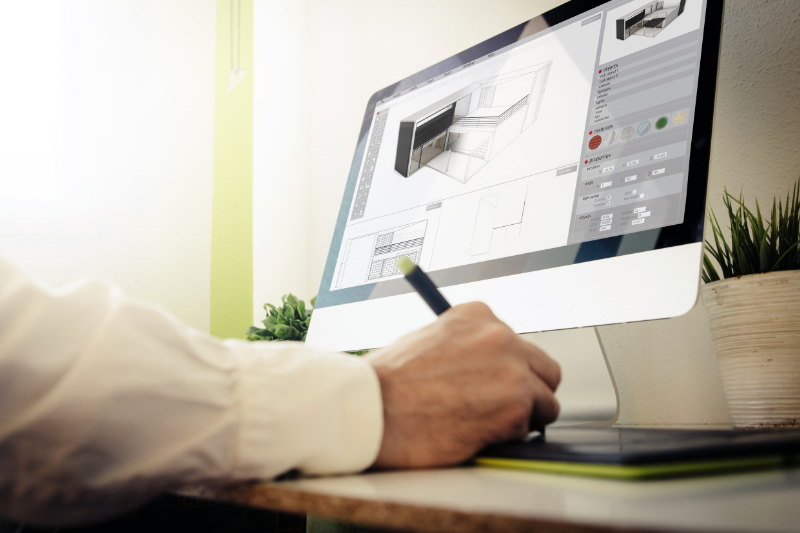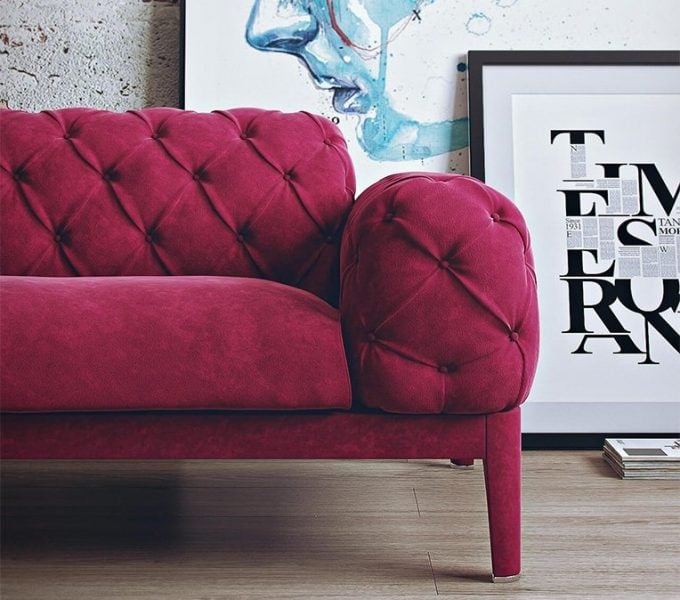What is 3D Rendering Used for in the Furniture Industry?
When developing, launching, and promoting new products, manufacturers expect to spend a lot of their resources. Firstly, they go through producing a bunch of prototypes until they develop the perfect design. Secondly, each product design option requires plenty of promo images. Therefore, if manufacturers opt for traditional photography, they have to deal with endless photo shoots and all the headaches that come with this process.
Moreover, manufacturers need different types of imagery for marketing purposes. And there’s no better way to get diverse visual materials, static and motion, than using CGI. With 3D, brand marketers don’t have to invest big budgets in producing samples and arranging photo and video shoots. They just send a 3D rendering studio a project brief and get stunning CG imagery in just a few days.
What is 3D Rendering for Furniture Business?
3D rendering in the furniture business involves creating highly realistic, computer-generated images of furniture pieces using specialized software. Through 3D rendering, manufacturers and retailers can visualize and present furniture designs in lifelike settings without the need for physical prototypes or photoshoots.
So, what is 3D rendering used for at different furniture business stages, and how does it help boost goods on the market? Our article explains all this and more!
#1. Experimenting with Design at the Product Development Stage

For manufacturers, creating furniture design means going through trial and error and elaborating tons of ideas before they can find the ideal design. In the old days, they had to order new prototypes for every alteration to see how the idea looked in reality. However, today, it is unnecessary since they have CGI services at hand.
Now, what is 3D rendering used for in design development? With 3D technologies, CG artists can create and change 3D product models digitally and immediately see the results in the rendering software. It makes the whole process unlimited in terms of creativity and adjustments, so manufacturers can freely experiment with their ideas. Once they are satisfied with the final version of their goods, they can send a 3D model to a 3D printing studio and get a prototype of the fully approved furniture piece design.
#2. Getting Various Types of Images for Product Testing

Before launching a new product or collection, a brand has to test all the design options taking into account the opinion of customers. Product testing helps furniture makers understand which colors and materials their audience prefers and what functions they want for the goods to have. For this, brand marketers run surveys, and the audience examines and rates all the design options.
So what is 3D rendering used for at this stage? It allows marketers to get tons of images of different product designs without costly prototyping and photo shooting involved. With 3D rendering, marketers manage to save the budget, allocate more money to the upcoming business stages and find the potential bestseller with no sweat.
#3. Promoting Upcoming Goods via Pre-Order Marketing

Marketers know that even if a product is not manufactured, they must start promoting it before the launch. After all, they must gradually build up customers’ excitement about new items. In such cases, marketing specialists need images for promo campaigns and pre-order marketing. And with competitors and deadlines stepping on their heels, they have to find a way to get those pictures as soon as possible.
What is 3D rendering used for at the pre-ordering stage? CGI happens to be a perfect tool for getting promo images for goods that are not ready yet. CG artists can create a product model in 3D software, add any type of background and props, set a suitable lighting scheme and camera views — and voila! — 3D photography is ready. Once 3D rendering is done, marketers can use images right away to hype the product on social media, offer pre-orders in email newsletters, boost website landing pages with ad banners, etc.
#4. Boosting Online and Offline Promo
When a brand begins to advertise goods on all possible channels, each of them has certain requirements for imagery. So let’s look closer at the most important ones.
Online
Online promotion and marketing encompass social media campaigns, email marketing, and online advertising, all of which require captivating visuals to stand out. Manufacturers and sellers need a variety of high-quality 3D visuals, such as silo renders, lifestyle images, cut-out and close-up views, and even 360° product spins to fully engage their audience. Additionally, 3D product animation is an essential tool for online promotion, offering one of the most powerful ways to showcase products and boost visibility across digital platforms.
This marketing research claims that 54% of people would like marketers to put out more video content. And nobody wants to disappoint their customers, right? Thus, brands should consider promoting their goods with demo and story 3D animation and use how-to and assembly CG videos to explain how their furniture works.
Offline
What is 3D rendering used for in offline promo and marketing? Firstly, it’s ideal for outdoor advertising such as billboards, city lights, posters, transit adverts, and so on. Outdoor ads require high-resolution images that won’t lose quality when printed in large formats. And this is exactly why one needs 3D rendering — CG artists can tailor high-quality 3D images to any size of an advertising medium.
Also, offline promo includes exhibition activity. A furniture brand has to be presented at all the top furniture fairs and design events. Therefore, they need a bunch of brand collateral items — catalogs, brochures, leaflets, banners, booklets, business cards, PR kits, goodie bags, etc. With 3D rendering, brand marketers don’t have to spend money on photo shoots for each marketing material. All they have to do is outline their tasks in a 3D rendering brief, and CG experts will provide them with images in all the required formats and resolutions.
#5. Making Effortless Product Updates for Rebranding

When manufacturers decide to rebrand a furniture piece at the decline stage of the product cycle, they usually opt for improving the design of the item or enhancing its functionality. Based on marketing research of their audience’s preferences and new furniture trends, brands can tailor the design to win their customers back or completely retarget their goods.
With 3D rendering services at hand, it is much easier and less effort-consuming to make alterations to the product. For that, CG artists can adjust ready 3D models — they either completely change the design or slightly improve it by replacing materials and textures, adding/removing some elements, etc. Again, since all 3D modeling and rendering are done in 3D software, no actual prototypes and photos are needed. With a 3D model of the renewed product, all the next stages of the re-making and re-launching process will go without a hitch.
So what is 3D rendering used for in the furniture business? For starters, it reduces the number of prototypes needed for the design development and saves money on product images for testing. 3D rendering also substitutes traditional photos as it provides high-quality pictures and doesn’t require actual photo shooting. With 3D, marketers can get as many images as they need for both online and offline promo and marketing. Moreover, using CGI services, one can order photoreal 3D animation to avoid extra expenses on filming adverts and promo videos.
Ready to order 3D rendering services? Contact us to get various types of photorealistic CG visuals for any marketing goal!



Leave a Reply
Want to join the discussion?Feel free to contribute!